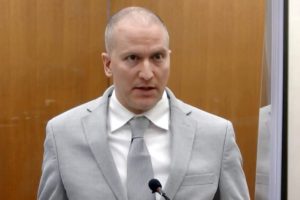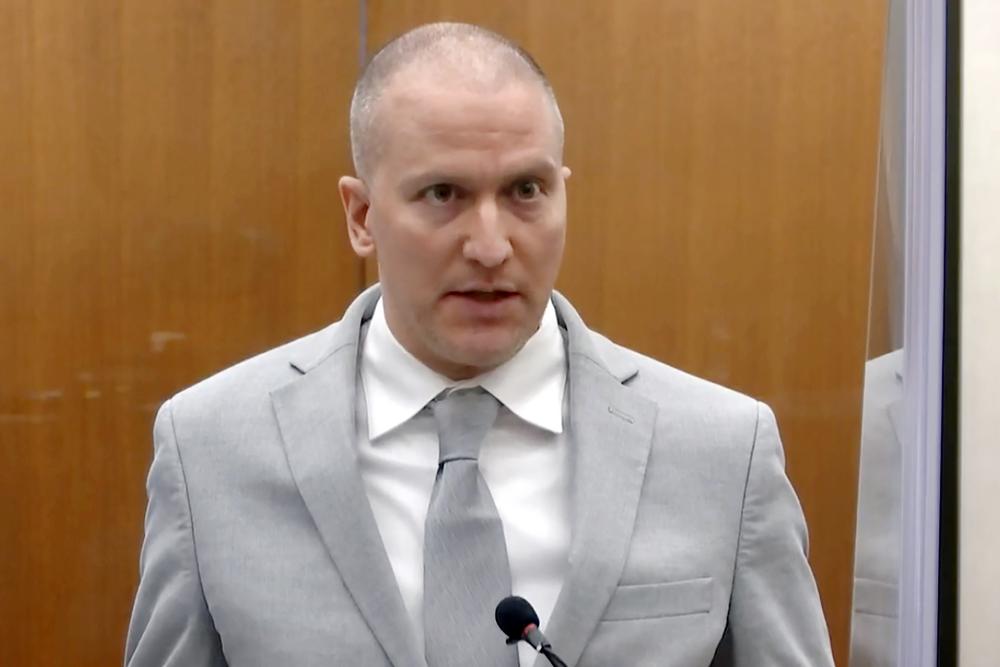
COURTESY AP
British Prime Minister Boris Johnson agreed to resign Thursday after days of defections crippled the controversial leader and left him unable to govern.
Johnson finally agreed to step down after one of his closest allies, Treasury Chief Nadhim Zahawi, told the prime minister to resign for the good of the country. It was not immediately clear whether Johnson will stay in office while the Conservative Party chooses a new leader, who will automatically become prime minister as well. A formal announcement is expected later Thursday.
“Prime Minister: this is not sustainable and it will only get worse: for you, for the Conservative Party and most importantly of all the country,” Zahawi said in a letter to Johnson. “You must do the right thing and go now.”
Zahawi’s intervention came after two more members of Johnson’s Cabinet resigned, along with three junior officials, pushing the number of those who have left the government this week past 50.
Johnson on Wednesday rejected calls to resign, arguing that he had a mandate from the voters to remain in office. But by Thursday morning the man who has built a reputation for wriggling out of political controversies was forced to admit the reality of his situation.
Bernard Jenkin, a senior Conservative Party lawmaker, said he met with Johnson on Wednesday and advised him to stand down.
“I just said to him, ’Look, it’s just when you go now, and it’s how you go. You can go with some dignity or you can be forced out like Donald Trump, clinging to power and pretending he’s won the election when he’s lost,” Jenkin told the BBC before Johnson agreed to resign.
Johnson, 58, managed to remain in power for almost three years, despite allegations that he was too close to party donors, that he protected supporters from bullying and corruption allegations, and that he misled Parliament and was dishonest to the public about government office parties that broke pandemic lockdown rules.
But recent disclosures that Johnson knew about sexual misconduct allegations against Chris Pincher, a Conservative lawmaker, before he promoted Pincher to a senior position turned out to be the last straw.
Last week, Pincher resigned as deputy chief whip after complaints he groped two men at a private club. That triggered a series of reports about past allegations leveled against Pincher — and shifting explanations from the government about what Johnson knew when he tapped him for a senior job enforcing party discipline.
Health Secretary Sajid Javid and Treasury chief Rishi Sunak resigned within minutes of each other Wednesday over the scandal. The two Cabinet heavyweights were responsible for tackling two of the biggest issues facing Britain — the cost-of-living crisis and COVID-19.
Javid captured the mood of many lawmakers when he said Johnson’s actions threatened to undermine the integrity of the Conservative Party and the British government.
“At some point we have to conclude that enough is enough,” he told fellow lawmakers Wednesday. “I believe that point is now.”
Welsh Secretary Simon Hart resigned on Wednesday, and Northern Ireland Secretary Brandon Lewis followed suite early Thursday, telling Johnson in his resignation letter that “we are … past the point of no return. I cannot sacrifice my personal integrity to defend things as they stand now.” He was later followed by Education Secretary Michelle Donelan, who was only appointed to her post on Tuesday to replace Zahawi.
Johnson had attempted to defy the mathematics of parliamentary government and the traditions of British politics. It is rare for a prime minister to cling to power in the face of this much pressure from his Cabinet colleagues.
The closest parallel may be Margaret Thatcher, the long-time Conservative prime minister who in 1990 sought to remain in office after her authority was undermined by disagreements over Britain’s relationship with what is now known as the European Union. But even she decided to resign after a number of Cabinet ministers told her it would be better for the party if she stepped aside.
Johnson may try to remain in office until the Conservative Party chooses a new leader, a process likely to take place over the summer. But some Conservatives said he should leave 10 Downing St. immediately to end the chaos engulfing the government.
George Freeman, who quit as science minister on Thursday, tweeted that “Boris Johnson needs to hand in the seals of office, apologise to Her Majesty (Queen Elizabeth II) and advise her to call for a caretaker prime minister. To take over today so that ministers can get back to work and we can choose a new Conservative leader to try and repair the damage and rebuild trust.”
Ex-cop Chauvin to get federal sentence for Floyd’s killing
COURTESY AP
Derek Chauvin will learn his sentence Thursday for violating George Floyd’s civil rights, with a deal in place that would extend the former Minneapolis police officer’s time behind bars while shifting him to possibly more favorable conditions in a federal prison.
Chauvin agreed to a sentence of 20 to 25 years in his December plea to a federal charge in Floyd’s killing. U.S. District Judge Paul Magnuson will make the final decision, with prosecutors seeking the full 25 on the grounds that Chauvin’s actions were cold-blooded and needless.
The defense has asked for 20 years, saying Chauvin accepts responsibility for what he did, and has already gotten a 22 1/2-year prison sentence from a state court for murdering Floyd. Attorney Eric Nelson wrote that Chauvin’s “remorse will be made apparent to this Court,” suggesting Chauvin is likely to speak at Thursday’s hearing.
Former U.S. Attorney Tom Heffelfinger said a judge could take such a statement into consideration during sentencing.
“This is his opportunity to say, ‘I’m sorry, I didn’t mean to, I didn’t think, or whatever,’” Heffelfinger said. “In federal court it’s very much to the inmate’s advantage to be remorseful, and to demonstrate remorse, even more than at a state sentencing.”
Chauvin briefly addressed Floyd’s family at his state sentencing hearing in May 2021, offering condolences. Relatives of Floyd gave victim impact statements then, and have the right to do so Thursday. The family’s attorneys did not respond to messages seeking comment on their plans.
In entering his federal plea, Chauvin for the first time admitted that he kept his knee on Floyd’s neck — even as the Black man’s pleaded, “I can’t breathe,” and then became unresponsive — resulting in Floyd’s death. Chauvin, who is white, admitted he willfully deprived Floyd of his right to be free from unreasonable seizure, including unreasonable force by a police officer, during the May 2020 arrest.
Floyd’s killing sparked protests in Minneapolis and around the world in a reckoning over police brutality and racism.
For his own protection, Chauvin has been held in isolation in a 10-by-10-foot room at the state’s maximum security prison that he’s allowed to leave for an average of one hour per day for exercise.
Defense attorney Eric Nelson said in a court filing last month that Chauvin might never be placed in a prison’s general population because of the risks of him becoming a target.
Chauvin’s plea deal calls for him to serve the federal sentence at the same time as the state one, and to serve it in federal prison. He’s expected to serve more time behind bars than he would have faced on the state sentence alone.
However, experts say Chauvin might be safer, and live under fewer restrictions, in a federal prison. His security level and final destination will be up to the U.S. Bureau of Prisons, which could send him anywhere in the country.
Chauvin would run the risk in the general population of a Minnesota state prison of encountering inmates he had arrested or investigated. While he can’t totally escape his notoriety in a federal prison elsewhere, he’s unlikely to encounter inmates with whom he has a direct connection. If the bureau decides he’s safe enough in the general population, he’d have more opportunities to move about the facility, to work and to participate in programming.
With credit for good time in the federal system, he could serve anywhere from 17 years to 21 1/4 years behind bars, assuming the judge sticks to the range in the plea agreement. In the state system alone, Chauvin could have become entitled to parole after about 15 years.
Three other former Minneapolis police officers — Tou Thao, J. Alexander Keung and Thomas Lane — were convicted in February of federal civil rights charges in Floyd’s killing. Magnuson has not set sentencing dates for them.
Lane is also due to be sentenced Sept. 21 after pleading guilty in state court to aiding and abetting second-degree manslaughter. Thao and Kueng turned down plea deals and are due to be tried in state court Oct. 24 on aiding and abetting charges.
